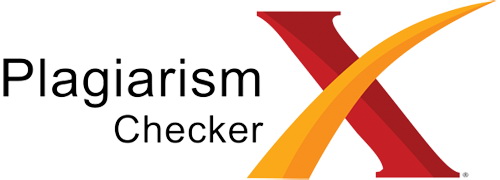Eco-Literacy Content in Language Learning and its Impact on Students’ Pro-Environmental Habit at State Junior High School (SMPN) 4 of Ternate City
DOI:
https://doi.org/10.53863/ejou.v4i02.1127Keywords:
Eco-literacy, literacy culture, pro- environmental habitAbstract
One of the efforts to develop ecological literacy skills can be done through formal education. The system owned by formal education, namely schools, is able to induce components that support ecological literacy skills, including knowledge, skills, attitudes and actions. The purpose of this study was to find out what eco-literacy content is in language learning and its impacts on students' pro-environmental habit. This research was conducted at SMP Negeri 4 Kota Ternate. The method used in this research is content analysis on textbooks and students interview to obtain information and practical experience of students. Based on the results of data analysis, in class VII and IX, there is one unit each in the textbook which contains literacy ecology with the respective themes 'Let's Clean Up' and 'Let's Live Healthy' (Let’s live a healthy life). For the first theme, the significant impact that is visible and integrated in daily activities at school is that students always maintain cleanliness by sweeping and cleaning before starting lessons, throwing garbage in its place, always cleaning the black-board after use, wearing clean and tidy uniforms when going to school. Interview data also showed that students always helped their parents to clean the house on Sundays, cut thick branches, clean gutters, clean bedrooms, etc. The second theme is about maintaining a healthy life, there are some students who bring food from home because it is cleaner and safer, students regularly cut their nails, cut their hair (for boys), bathe with soap, brush their teeth and wear perfume to school. Based on the analysis and interview data above, it can be concluded that students know, understand, and practice the habit of maintaining cleanliness and healthy living practices in daily life at school and at home, meaning that eco-literacy learning has a positive impact on students' understanding of environmental insights both at school and at home.
References
Adam, S. H., & Ali, S. U. 2020. A Study on EFL Teacher’s Own Criteria In Selecting English Textbook for Secondary School Students in Ternate Context Cakrawala Bahasa, 9(2), 62-66.
Adam, S. H., Ismail, A., & Ali, S. U. 2022. Local Wisdom-Based Literary Literacy In Language And Literature Learning For Senior High School Students In Ternate: Strategies And Obstacles. Language Literacy: Journal of Linguistics, Literature, and Language Teaching, 6(1), 65-77.
Ali, Silvani Umar, Kurniaty Sy, Sasmayunita. 2018. The Literacy-based Learning in the Context of 2013 Curriculum at SMP Negeri 1 Kota Ternate. Proceedings of the 1st Inter-national Conference on Teaching and Learning (ICTL 2018), pages 136-141 ISBN: 978-989-758-439-
Endraswara, Suwardi. 2016. Metode Penelitian Ekologi Sastra Konsep, Langkah dan Penerapan. Yogyakarta. CAPS (Center for Academic Publishing Service).
GLS Kemendikbud, 2019. Desain Induk Gerakan Literasi Sekolah. Edisi ke II. Jakarta. Diterbitkan Direktorat Jenderal Pendidikan Dasar dan Menengah Kementerian Pendidikan dan Kebudayaan
Ilhami, Aldeva. 2019.Kontribusi Budaya Lokal Terhadap Literasi Lingkungan: StudiKasus di SMP Pandam Gadang Sumatera Barat. NSI: Journal of Natural Science and Integration p-ISSN: 2620-4967|e-ISSN: 2620-5092 Vol. 2, No. 2, Oktober 2019, Hal. 122 – 131
Isnanda, Romi. 2020. Teks Berwawasan Kecerdasan Ekologis dalam Pembelajaran Bahasa sebagai Penanaman Nilai-Nilai Pendidikan Islam. DOI: 10.25299/al-thariqah.2021.vol6(2).7926 P-ISSN 2527-9610.E-ISSN 2549-8770
Jusnita, N., & Ali, S. U. 2022. Penyuluhan literasi digital anti Hoax, Bullying, dan ujaran kebencian pada remaja di kota Ternate. ABSYARA: Jurnal Pengabdian Pada Masyarakat, 3(2), 177-186.
Rusmawan. 2017. Ecoliteracy Dalam Konteks Pendidikan IPS. Universitas Sanata Dhar-ma. SOSIO DIDAKTIKA: Social Science Education Journal, 4 (2).
Utami, Septi Wahyu. 2019. Penerapan Pendidikan Karakter Melalui Kegiatan Kedi-siplinan Siswa. Jurnal Pendidikan. Volume 04 Nomor 01 Tahun 2019.e-ISSN: 2527-6891.DOI : 10.26740/jp.v1n1.p63—66
Downloads
Published
How to Cite
Issue
Section
License
Copyright (c) 2024 Silvani Umar Ali,Sri Ayu Budi Lestari,Susana R Bahara,Naniek Jusnita,Yusup Supriyono,Ismi Oktalia Putri

This work is licensed under a Creative Commons Attribution-ShareAlike 4.0 International License.
Authors retain copyright and grant the journal right of first publication with the work simultaneously licensed under a Creative Commons Attribution-ShareAlike 4.0 International License that allows others to share the work with an acknowledgment of the work’s authorship and initial publication in this journal









